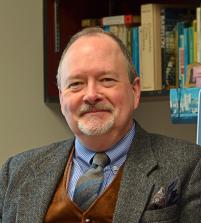The Continuing Responsibility of North-West Theologians in Global Christianity by John G. Stackhouse, Jr
As Martin Marty's pointed out in this past Monday's Sightings, "everyone knows" nowadays that Christian Europe is long over, and Christian North America is declining quickly as well. Africa, South America, and Asia, with their burgeoning populations of enthusiastic Christians, are where the action is. We are already two decades past the moment when the majority of the world's Christian population became non-Caucasian. Missionaries from those regions have streamed into the Global North-West to evangelize once-Christian lands. The centres of Christian influence will soon be, if they are not already, Nairobi, Lagos, Rio de Janeiro, Wenzhou, and Seoul. Who can deny the obvious Christian demographic shift to the Global South? Yet some breathless exponents of these shifts are getting ahead of themselves in at least one respect. In particular, they are failing to observe two key correlations : theology costs money and it costs time. I have just returned from a whirlwind lecture tour of four British universities: Liverpool Hope, Bristol, Edinburgh, and Cambridge. Yes, church attendance in the United Kingdom lags well behind the startling numbers in many southern countries. Yes, the Church of England seems a rather fractious and fractured remnant of a once-vital church. But as the visitor gazes at the buildings that house theological study in Britain, as one tours the libraries, and as one participates in conversations with scholars whose pedigrees go back centuries, one cannot help but be impressed by how much money and time lies behind the intellectual leadership North-Western theologians continue to exercise in world Christianity. The early church had the well-trained rabbi Paul - someone steeped in Jewish tradition - as its intellectual leader
By John G. Stackhouse, Jr.April 30, 2009
As Martin Marty's pointed out in this past Monday's Sightings, "everyone knows" nowadays that Christian Europe is long over, and Christian North America is declining quickly as well. Africa, South America, and Asia, with their burgeoning populations of enthusiastic Christians, are where the action is. We are already two decades past the moment when the majority of the world's Christian population became non-Caucasian. Missionaries from those regions have streamed into the Global North-West to evangelize once-Christian lands. The centres of Christian influence will soon be, if they are not already, Nairobi, Lagos, Rio de Janeiro, Wenzhou, and Seoul.
Who can deny the obvious Christian demographic shift to the Global South? Yet some breathless exponents of these shifts are getting ahead of themselves in at least one respect. In particular, they are failing to observe two key correlations : theology costs money and it costs time.
I have just returned from a whirlwind lecture tour of four British universities: Liverpool Hope, Bristol, Edinburgh, and Cambridge. Yes, church attendance in the United Kingdom lags well behind the startling numbers in many southern countries. Yes, the Church of England seems a rather fractious and fractured remnant of a once-vital church. But as the visitor gazes at the buildings that house theological study in Britain, as one tours the libraries, and as one participates in conversations with scholars whose pedigrees go back centuries, one cannot help but be impressed by how much money and time lies behind the intellectual leadership North-Western theologians continue to exercise in world Christianity.
The early church had the well-trained rabbi Paul - someone steeped in Jewish tradition - as its intellectual leader. It took centuries for the church to produce anyone to rival him in intellectual power, and Augustine was largely the result of a classical tradition a millennium old, and only latterly of a much-younger Christian one. Not until its own (first) millennium had passed did the western church develop its earliest universities, and while brilliant theology had flourished here and there beforehand (Lyons, Alexandria, Antioch, Cappadocia), a large-scale and sustained intellectual tradition awaited the era of the high middle ages when European Christendom finally enjoyed sustained cultural wealth and stability.
Theological education has been going on, of course, in each of these new communities, some of whom in fact have centuries-old roots themselves. But in comparison with the lineages and legacies of Harvard or Oxford or Paris, or the wealth that produced theological training at Chicago or Duke or Toronto, it is clear where the theological center of gravity will remain for some time yet.
So of course North-Western theologians today should seek out the wisdom of Christian thinkers in these exciting new communities. Of course we have much to learn from brothers and sisters who labor to understand and articulate the gospel in contexts wonderfully and fruitfully different from our own.
But the simple fact is that North-Western theologians will continue to benefit from the accumulated resources of centuries. They will therefore be responsible to continue to bless the world as best they can out of those riches. This is no brief for conceit, but rather a call to heightened responsibility: "To whom much is given, much will be required."
And part of that responsibility will be to invest money and time in the nascent theological institutions outside the North-West so that they can bring their own distinctive intellectual contributions to the global conversation as quickly and as bountifully as possible.
John Stackhouse is the Sangwoo Youtong Chee Professor of Theology and Culture at Regent College, Vancouver, Canada, and has lectured in China, India, Israel, Korea, and Malaysia, as well as in North America and Britain.


